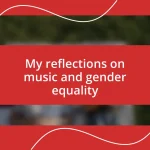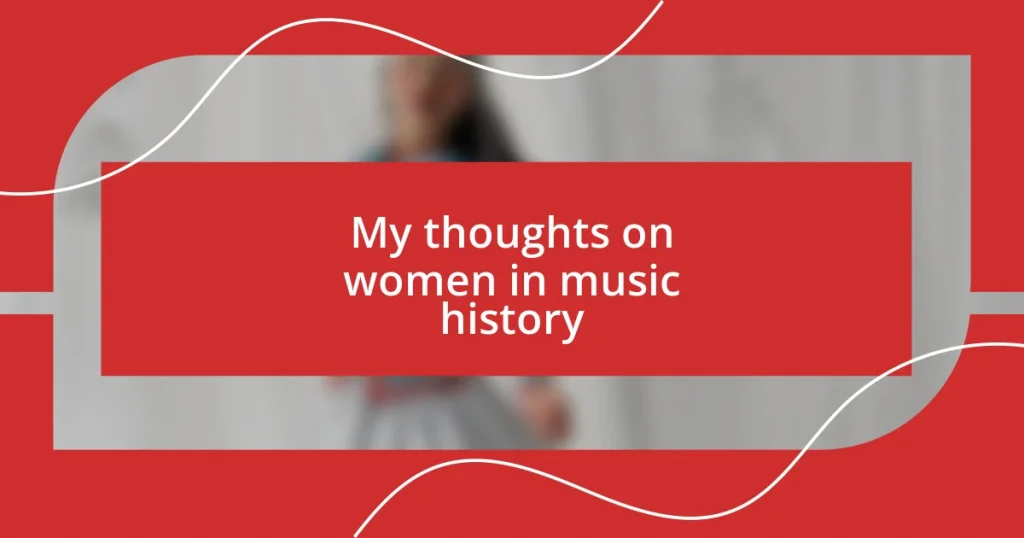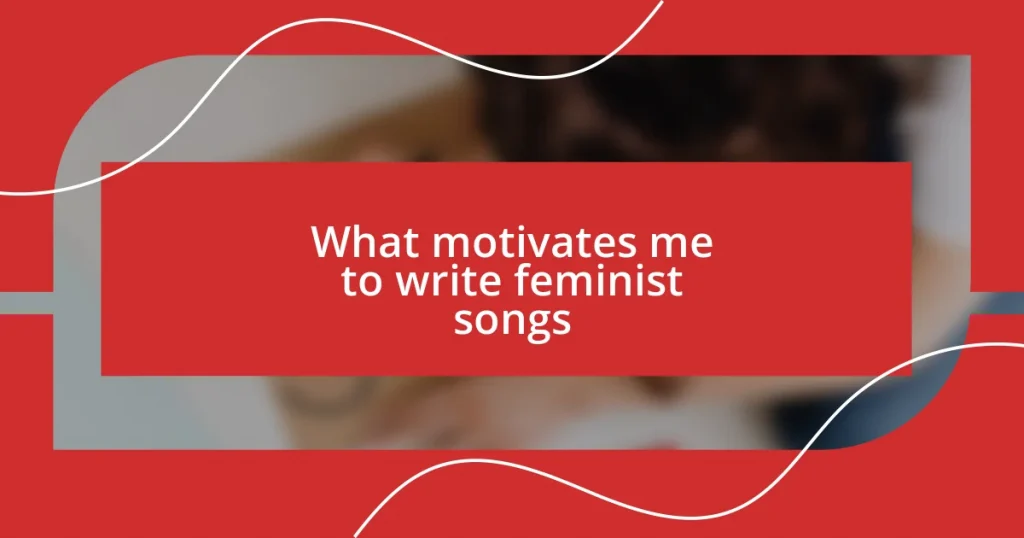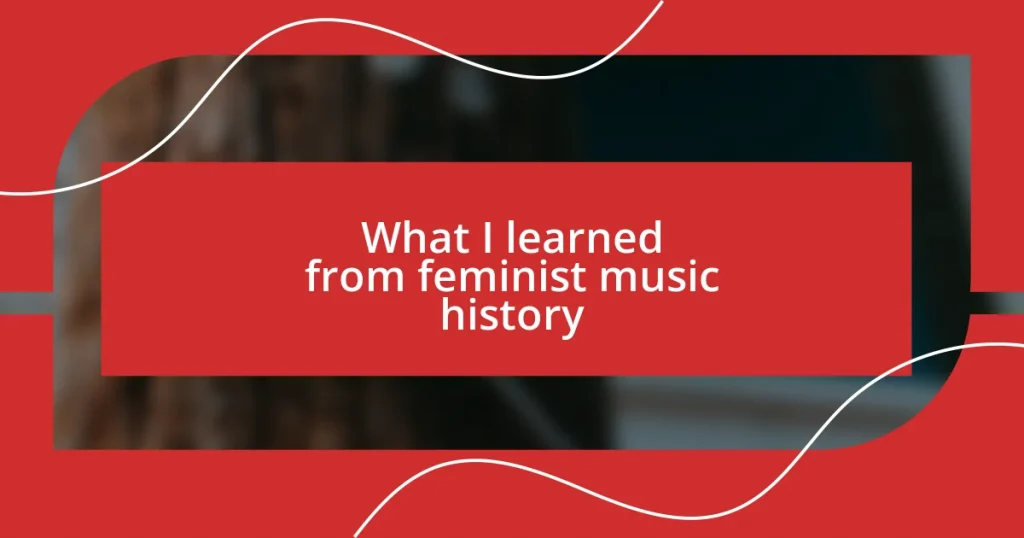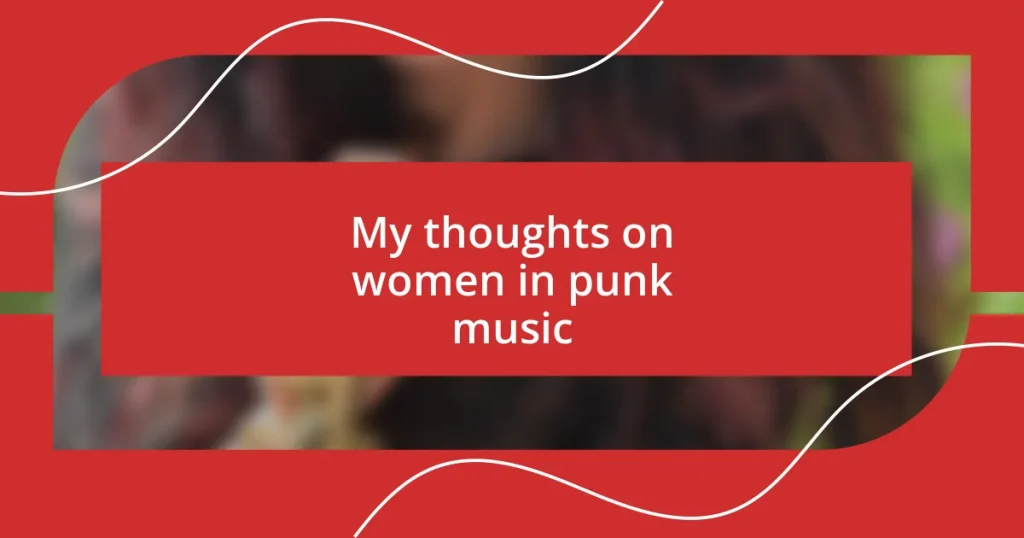Key takeaways:
- Clara Schumann’s contributions as a pianist and composer were often overshadowed by her husband, highlighting the gender bias in recognizing women’s roles in music history.
- Ethel Smyth’s premiere of “The Wreckers” in 1906 exemplifies women’s resilience in a male-dominated opera field, addressing ongoing struggles for equality in music.
- Notable women in various genres, such as Joan Jett in rock and Dolly Parton in country, have made significant contributions that address social issues and redefine their respective genres.
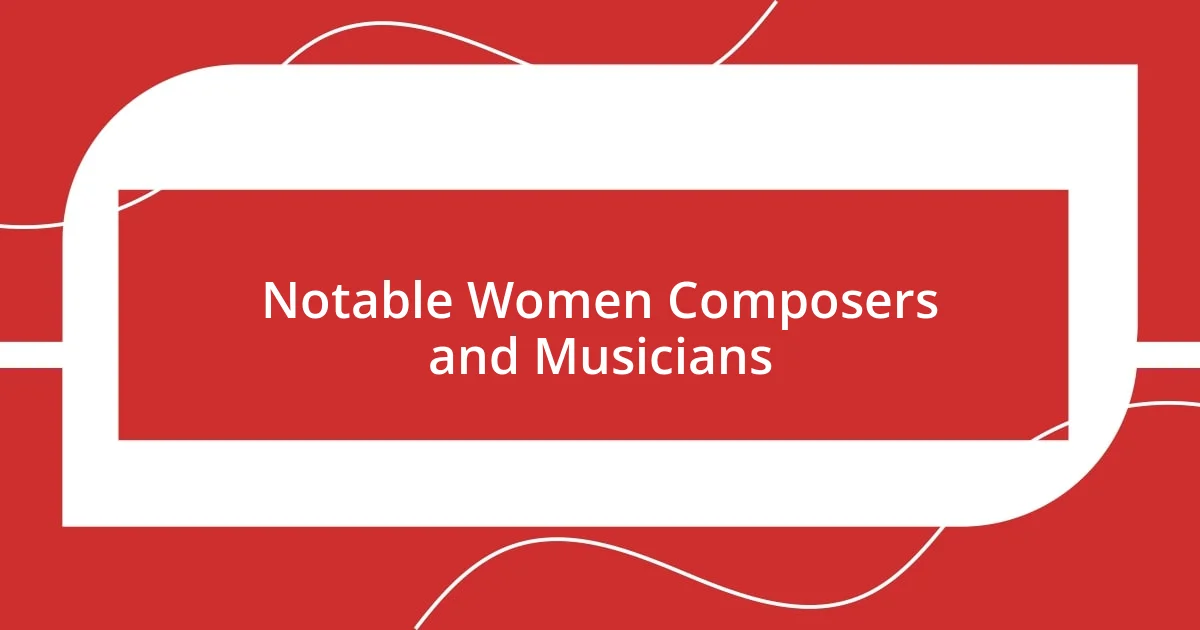
Notable Women Composers and Musicians
When I think about notable women composers, Clara Schumann immediately comes to mind. Her talent was undeniable, yet she often remained in the shadow of her husband, Robert Schumann. Isn’t it interesting how her contributions to piano and song composition are sometimes overlooked? It feels so unjust, doesn’t it? I remember the first time I listened to her “Piano Concerto in A Minor”—the intricacy and emotion in her work left me in awe.
Another incredible figure is Ethel Smyth, a trailblazer in the realm of opera. When I learned that her opera “The Wreckers” had its premiere in 1906, I was struck by how a woman was carving out space in such a male-dominated field. Can you imagine the resilience she must have had, fighting for her voice to be heard amid the societal norms of her time? Her determination resonates with me, especially in today’s ongoing struggles for equality in the music industry.
Then there’s Marian Anderson, whose powerful contralto voice broke racial barriers in the early 20th century. I was deeply moved when I discovered her historic performance at the Lincoln Memorial in 1939, which was a pivotal moment in both music and civil rights. How could someone so talented face such prejudice and still uplift so many? Her courage reminds us that music is not just about notes and rhythms; it’s a force for change in the world.
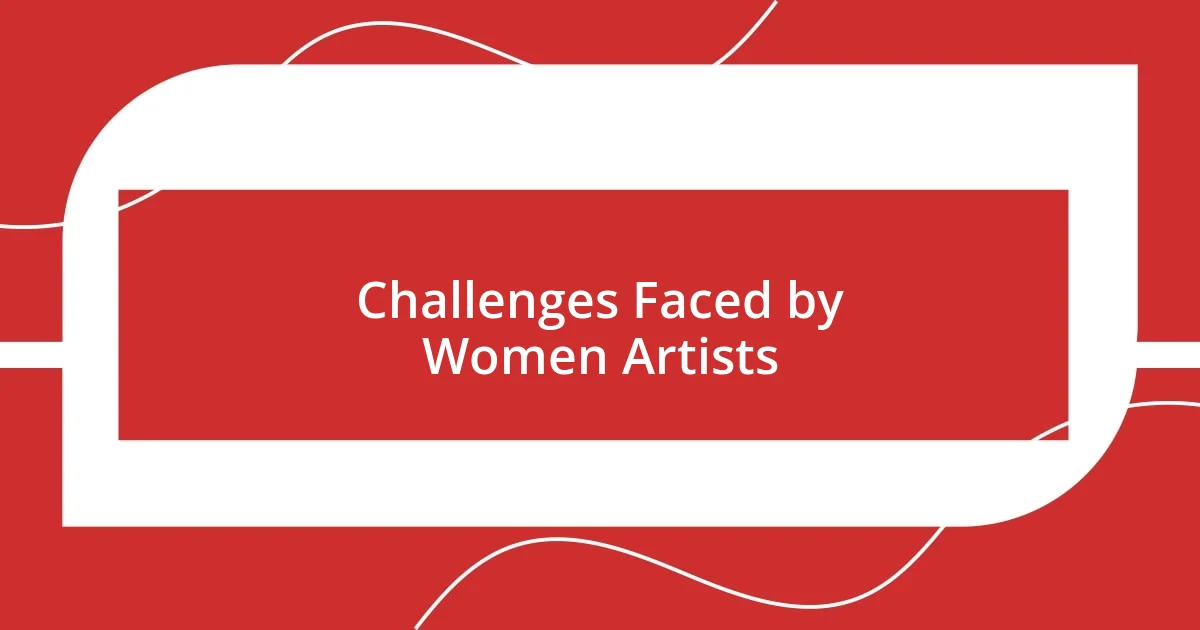
Challenges Faced by Women Artists
Women artists in music history have faced numerous challenges that often stifled their creativity and impact. For example, many have had to navigate a landscape dominated by men, where opportunities were scarce. I remember hearing about the struggles of women like Ruth Crawford Seeger, who had to advocate tirelessly for recognition in a field that often dismissed their contributions. It struck me how hard it is to keep one’s passion alive when acknowledgment feels perpetually out of reach.
Moreover, societal expectations have played a significant role in shaping the careers of women musicians. Women were often relegated to roles like homemakers or supporting musicians, which limited their artistic expression. I think about artists like Billie Holiday and the struggle she faced not only as a black woman in the music industry but also as a public figure fighting against the expectations of femininity in her time. Her story is a stark reminder of how the pressures of society can suffocate talent.
Lastly, financial instability continues to be a pressing issue for women in music. Many female artists find it hard to secure sponsorship or support compared to their male counterparts. I once met an aspiring female producer who shared her frustrations about applying for grants. She explained that even when she had a brilliant proposal, she felt her gender put her at a disadvantage. The music world still has a long way to go in ensuring that talent triumphs over gender bias, and it’s a discussion that needs to be amplified.
| Challenge | Examples |
|---|---|
| Gender Bias | Women like Ruth Crawford Seeger fought for recognition in a male-dominated field. |
| Societal Expectations | Artists like Billie Holiday navigated the pressures of femininity and race. |
| Financial Inequality | Aspiring female producers often face hurdles in securing funding and opportunities. |
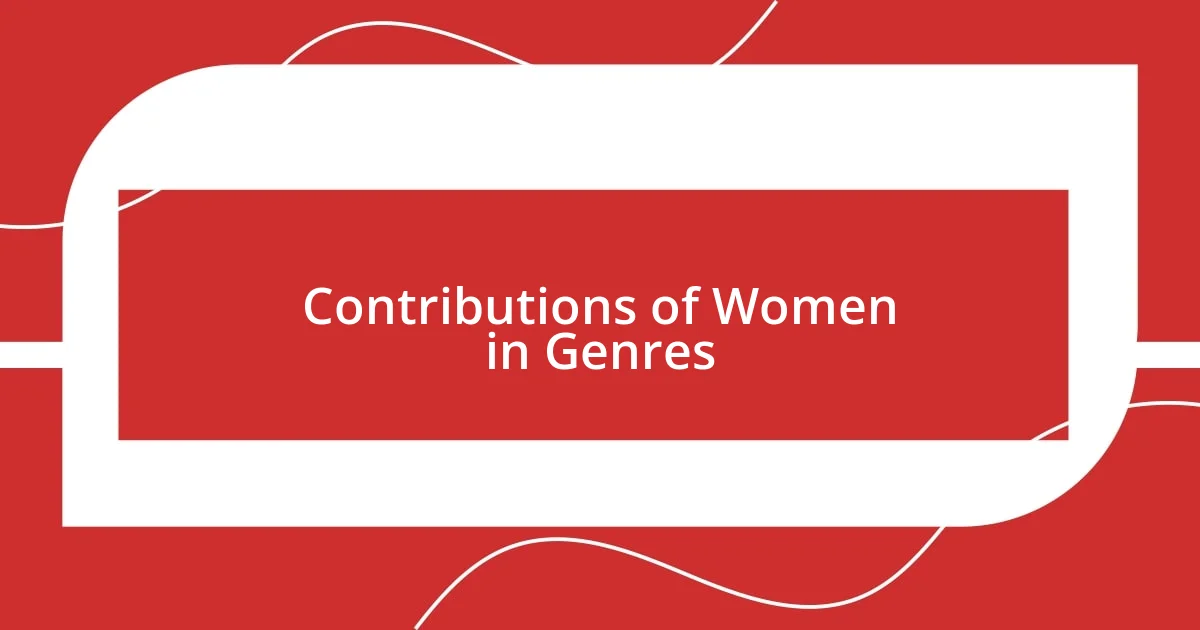
Contributions of Women in Genres
Women have made remarkable contributions across various musical genres, each leaving a unique mark on the sound and culture of their time. Take the emergence of rock music, for instance—artists like Joan Jett and Patti Smith broke through the male-dominated barriers and defined what it meant to be a female rocker. Their unapologetic defiance and creative authenticity not only inspired countless other female musicians but also reshaped the entire genre. How empowering it is to reflect on the boldness they exuded!
In country music, the influence of women is vividly apparent in artists like Dolly Parton and Loretta Lynn. Both have tackled significant social issues through their songwriting, offering their perspectives on love, empowerment, and hardship. I remember being struck by Dolly’s ability to balance humor and heartache in songs like “Jolene.” It made me realize how storytelling through country music can resonate deeply with listeners. What keeps inspiring me is how their narratives reflect universal experiences, making their music timeless.
Jazz, too, bears the indelible imprint of female musicians like Ella Fitzgerald and Billie Holiday, whose voices captured the essence of the genre’s emotional complexity. Listening to Fitzgerald’s scat singing for the first time left me utterly mesmerized by her vocal improvisation skills. It’s fascinating to consider how much improvisation in jazz reflects the spontaneity of life itself. Isn’t it remarkable how female artists can weave their experiences into a sound that feels both deeply personal and universally relatable? Their influence continues to inspire new generations, reminding us that women have always played a critical role in shaping our musical heritage.





